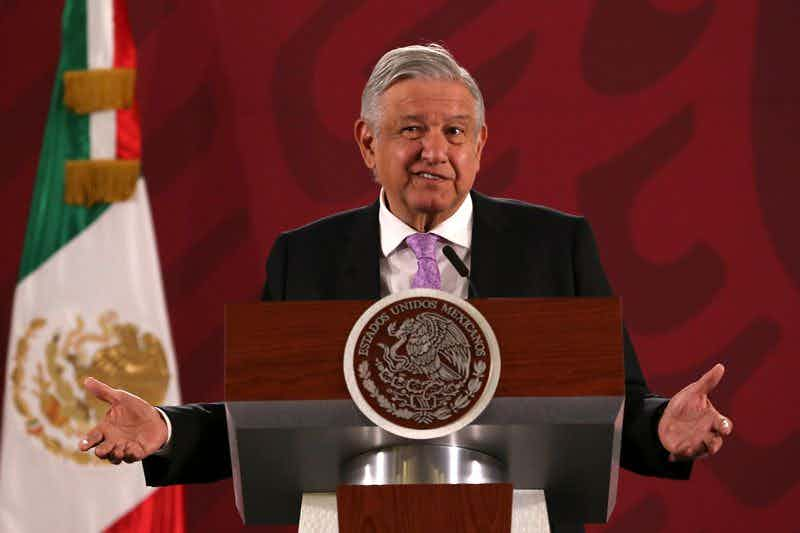Mexico has banned the import of all vaping products by presidential decree. The new law, which took effect on Feb. 20, bans all products, including zero-nicotine e-liquid and even hardware sold without e-juice.
Ironically, one of the positions that helped President Andrés Manuel Lopez Obrador earn a landslide victory in the 2018 election was his opposition to the prohibitionist war on drugs and support for legalizing cannabis. But Lopez Obrador’s vaping policy is purely prohibitionist. The president uses a variety of evidence-free health justifications for the vape ban, and cites the recommendation of the influential World Health Organization.
“That it has been reported that the use of these devices generates inflammation of the respiratory tract, the increase of white blood cells, as well as bilateral pulmonary opacities (spots in the lung), low oxygenation of the blood or even respiratory failure, in addition to an increased sensitivity of airway cells to viral infections,” says the presidential decree. “Its long-term use is expected to increase the risk of chronic obstructive pulmonary disease and lung cancer.”
In addition to claiming vaping causes chronic lung disease, Lopez Obrador’s decree strongly implies that nicotine vaping products are responsible for some of the U.S. vaping-related lung injuries known to be caused by illicit THC cartridges diluted with vitamin E acetate. He does this by using old data—like a CDC alert from Sept. 11—and by not explaining that many early cases involved patients who lied about their use of illegal cannabis oil products.
However, the primary reason cited for the ban is the ideology of the World Health Organization (WHO) and its Bloomberg-funded tobacco control arm the Framework Convention for Tobacco Control (FCTC). Lopez Obrador’s decree lists vaping risks promoted in various FCTC documents—including purported dangers to bystanders by second hand vapor.
“...WHO concluded that health risks for people in the environment exposed to the aerosol exhaled by [vaping product] users, turns out to be a new source of air pollution by particles, including fine and ultrafine particles, as well such as 1,2-propanediol, certain Volatile Organic Compounds (VOCs) and heavy metals (such as nickel and chromium), and nicotine; therefore, the increase in the concentration of toxic substances in the foreign aerosol, in relation to ambient air levels , represents a greater risk to the health of any exposed person.”
The bottom line for Mexico is that WHO/FCTC recommends prohibition when possible, and the government thinks it’s possible. Countries that follow WHO dogma on e-cigarette policy are rewarded with huge grants for public health programs that employ many people. Much of the funding for the WHO's tobacco control programs is provided by former New York City mayor Michael Bloomberg, who is now running for the Democratic nomination in this year's U.S. presidential race.
“...[The] Framework Convention of the World Health Organization for Tobacco Control recognized that [FCTC member countries] have already adopted different regulatory strategies with respect to [vaping products],” says the presidential decree, “such as the total ban on their sale, for which they invite their members to consider taking measures in accordance with their national legislation;
“...in January 2020, WHO issued a statement, which recognizes the damages associated with the use of these devices, and the addictive potential of them mainly in young people, so it recommends that in countries where these products are prohibited continue with said prohibition…”
The Mexican Ministry of Health says that sales of vaping products were already illegal in the country. The Puerta Vallarta Daily News said that the health ministry justified the new decree by claiming “there was a need for harmonization in the regulatory framework in order to prevent illegal trade practices of these products.”
It is unclear whether the presidential decree will mean a wave of enforcement on retailers or consumers, or will just be used as a showpiece to secure Bloomberg-funded WHO prizes. Mexico is a popular vacation destination. Seizing vapes from visitors (as illegal imports) would likely disrupt the country's thriving tourism industry.
Last November, the Mexican Supreme Court ruled that the country’s 2008 tobacco control law did not prohibit sales of e-cigarettes. That law bans products that imitate cigarettes but contain no tobacco, and was used to justify a ban on vaping products. Even though the Supreme Court ruling only applies to the parties that had sued, it may have set the stage for further lawsuits and possibly a wider ruling that would have opened the floodgates to vaping products in Mexico.
"All prohibitions lead to a black market, to social problems, and aggravate those that already exist," said Pro-Vapeo Mexico president Dr. Roberto Sussman. Consumer organization Pro-Vapeo México has a very informative website, which can be read in Spanish or English. Pro-Vapeo is a member of the International Network of Nicotine Consumer Organisations (INNCO). Sussman, a physicist, has been active in the fight for tobacco harm reduction for years.
More than 1.2 million Mexicans—one percent of the adult population—use vapor products somewhat regularly, according to a 2017 survey. Dr. Sussman estimates about half that many vape daily. According to the Tobacco Atlas, the adult smoking rate in Mexico was 11.9 percent in 2015—the lowest rate of any major North American country.

Jim McDonald
Vaping for: 13 years
Favorite products:
Favorite flavors: RY4-style tobaccos, fruits
Expertise in: Political and legal challenges, tobacco control haters, moral panics
Jim McDonald
Smokers created vaping for themselves without help from the tobacco industry or anti-tobacco crusaders, and I believe vapers and the vaping industry have the right to continue innovating to give everyone who wants to use nicotine access to safe and attractive non-combustible options. My goal is to provide clear, honest information about vaping and the challenges nicotine consumers face from lawmakers, regulators, and brokers of disinformation. You can find me on Twitter @whycherrywhy


